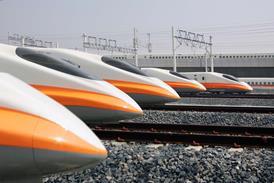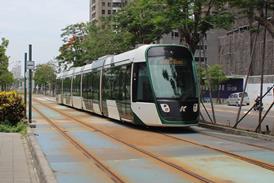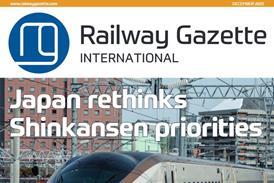Porto eyes Chinese trams as ridership grows
By Metro Report International2019-11-28T09:38:00

PORTUGAL: Metro do Porto has reportedly selected CRRC Tangshan as preferred bidder to supply and maintain a batch of 18 low-floor light rail vehicles as part of a network expansion project approved earlier this year.
Already have an account? LOG IN
To continue…
You’ve reached your limit of content for the month
Get enhanced access to Railway Gazette news and weekly newsletters.

For almost 200 years, the Railway Gazette Group has been the leading provider of news, analysis and intelligence for the international railway industry. Our independent and authoritative content is read by operators, regulators and the supply industry in over 140 countries using a variety of tailored subscription packages.
Site powered by Webvision Cloud



